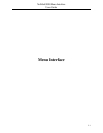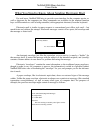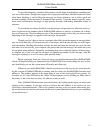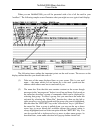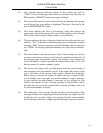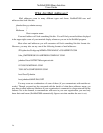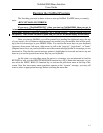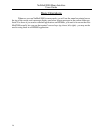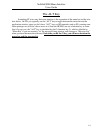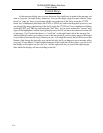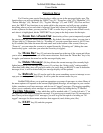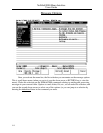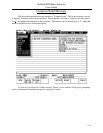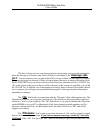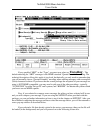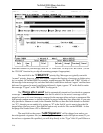
NetMail/3000 Menu Interface
Users Guide
2-5
(3) New (unread) message indicator column. In this column you will see
“NEW” in front of messages which have not yet been read. Note that on
HP terminals, “URGENT” unread messages will blink.
(4) This arrow indicates the column where the date and time that the message
was delivered into your mailbox is displayed. The date is followed by the
time in HOUR:MINUTE format.
(5) This arrow indicates the area of the message listing that displays the
approximate size of the message. The size is listed in bytes, and is rounded
into k-bytes if the message is large enough, or even M-bytes.
(6) This area indicates the type of message which has been delivered into your
mailbox. “Text” is the most common message type, and indicates a regular
message, “Mult” denotes a message with files attached, and you may also
see “UNDL” for messages that are returned to you if they were not deliver-
able.
(7) This area indicates who the message is from. If the message was sent by
someone on the same system, you will only see a simple mail name here. If
the message came from another system, you will see a more typical net-
work mail address, usually consisting of a name followed by an “@” and
then the name of a remote computer system.
(8) This area on the display tells you information about the current listing of
mail messages and your mailbox overall. In the upper left portion of this
area is the name of the current folder (whose contents are displayed).
Below that you see the total number of folders you have created. In addi-
tion, in further over to the right, you see the number of “urgent” messages
in your mailbox, the total number of messages (of any priority) in your
mailbox, the number of “new” (unread) messages in your mailbox, and on
the right side, the size of the current folder (in bytes) and below it the size
of your entire mailbox (in bytes).
(9) The subject line of the message. On the line below the description of the
message, if there was a subject specified by the sender, the subject line will
be displayed for you. Since subject is not required by the e-mail standards,
not all messages will have a subject specified (though in practice most do).



